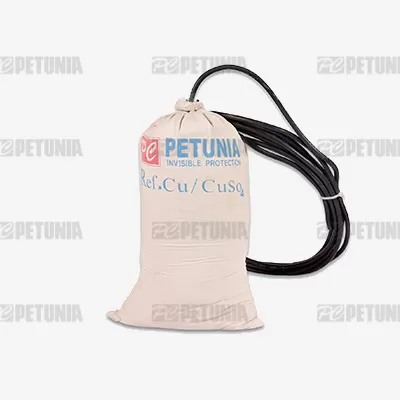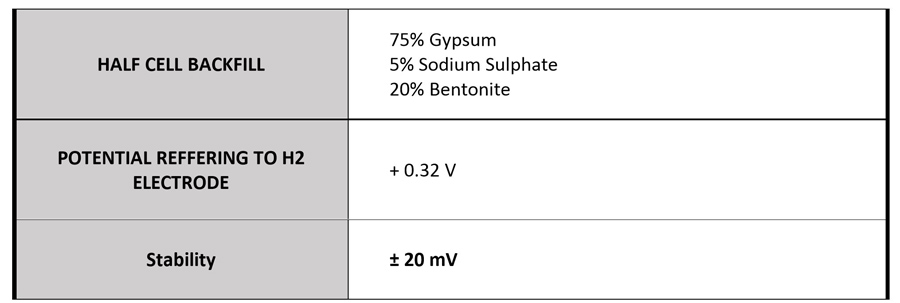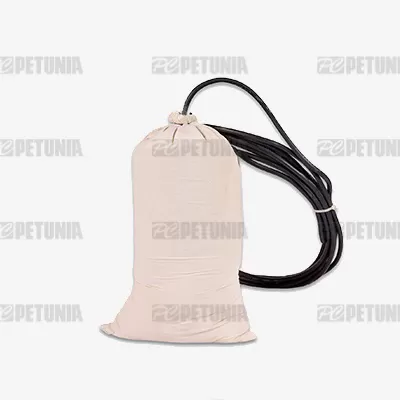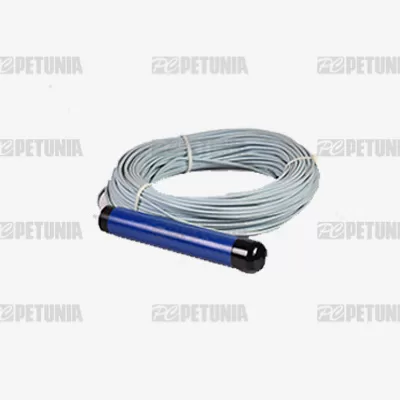Permanent Reference Electrode

Cu/CuSo4

Copper sulfate reference electrodes (CSE) are the most commonly used reference electrodes for measuring potentials of underground structures and also for those exposed to fresh water. It is not suitable for use in a chloride electrolyte as the chloride ions will migrate through the porous plug and contaminate the CSE. Permanent Cu/CuSO4 reference electrodes provide accurate and reliable potential measurements on buried metallic structures particularly aboveground storage tanks. Their placement in close proximity to protected structures permits readings which are more exact and less affected by fluctuating soil conditions than those obtained by portable electrodes. This is a permanent copper/copper sulfate reference electrode with a proven track record for stability. Long-life performance is achieved through a rugged design, which includes impact resistant PVC tubing. The tubing houses a 99.99% pure copper element and a supersaturated solution of copper sulfate.
Zn/ZnSo4

Zn/ZnSo4 are permanently installed in soil to facilitate the potential measurement of the protected structures. This permanent reference electrode can be used to measure cathodic protection potentials on buried pipelines, storage tanks and other buried metallic structures.

Zn
Zinc permanent reference electrode without any backfill can be used in soil for measuring potential of pipelines and storage tanks.
Ag/AgCl
Ag/AgCl reference cell is designed to obtain potential readings on structures located in brackish or salt waters. The cell is made from a silver element, which is contained in an inert tube and surrounded by a supersaturated gel of silver chloride on structures located in aqueous environments containing high chloride concentrations, such as salt water, reference cell has the proven electrical stability for long-life performance.
Silver-silver chloride (Ag-AgCl) reference electrodes are used for potential measurements of pipeline, tank internal and also in concrete structures.

